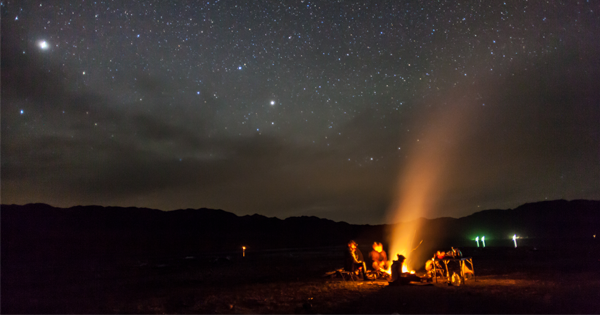Advertisement
It you’re a person who feels the guilt of not getting enough sleep every day, you may be closer to our ancestors than you think.
Researchers from the University of California, Los Angeles recently looked at data from populations living in three hunter-gatherer societies in rural Africa and South America to see what their sleeping patterns really were.
This research showed that people who live in the same way their ancestors do often only get around 6.5 hours of sleep per night.
Compared to industrial societies’ seven to eight hours a night, it seems that we may be sleeping more than our ancestors needed to survive.
Jerome Siegel, a sleep researcher at UCA, said: “We find that contrary to much conventional wisdom, it is very likely that we do not sleep less than our distant ancestors.”
In fact, most of the things we believe about our ancestors’ sleeping habits seem pretty off.
For example, where in the past we believed that early humans went to bed with the sunset and woke with the sunrise, this appears to not be true in the slightest. Instead, people in these societies, much like industrialized ones, often went to bed hours after sunset and woke before sunrise.
Another thing we believe is that because humans get so tired in the mid-afternoon, it must be some kind of ancestral tendency to nap that our ancestors had but that we don’t get the access to. However, studying these societies found that they rarely nap.
Not only that, but people in these societies, despite sleeping less and not napping, also rarely experience insomnia. Only 1.5 to 2.5 percent of people studied experienced insomnia at any point, where 10 to 30 percent of people in industrial societies experience it on a chronic level.
The difference in the amount and quality of sleep it seems is not length of daylight, but declining of temperature. Researchers believe that this could help treat sleep disorders, by regulating the environment.
“Future work is necessary, but our data suggests that environmental manipulation may more effectively control sleep than any drug. We see a 1-hour difference between summer and winter, whereas chronic use of sleeping pills adds at most 15 minutes to sleep time,” said Siegel.
Whatever the future of this study, you can feel a little better about only getting 6 hours of sleep now.




